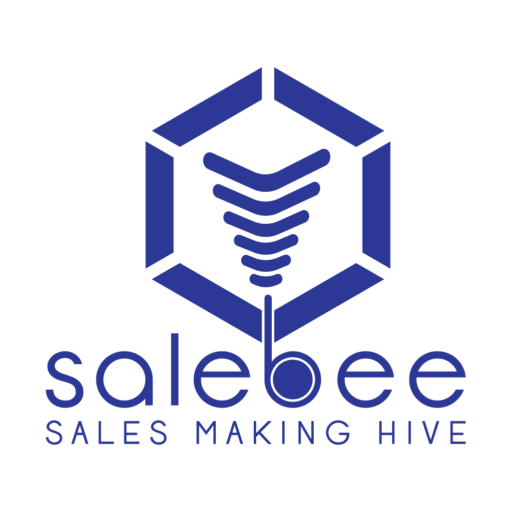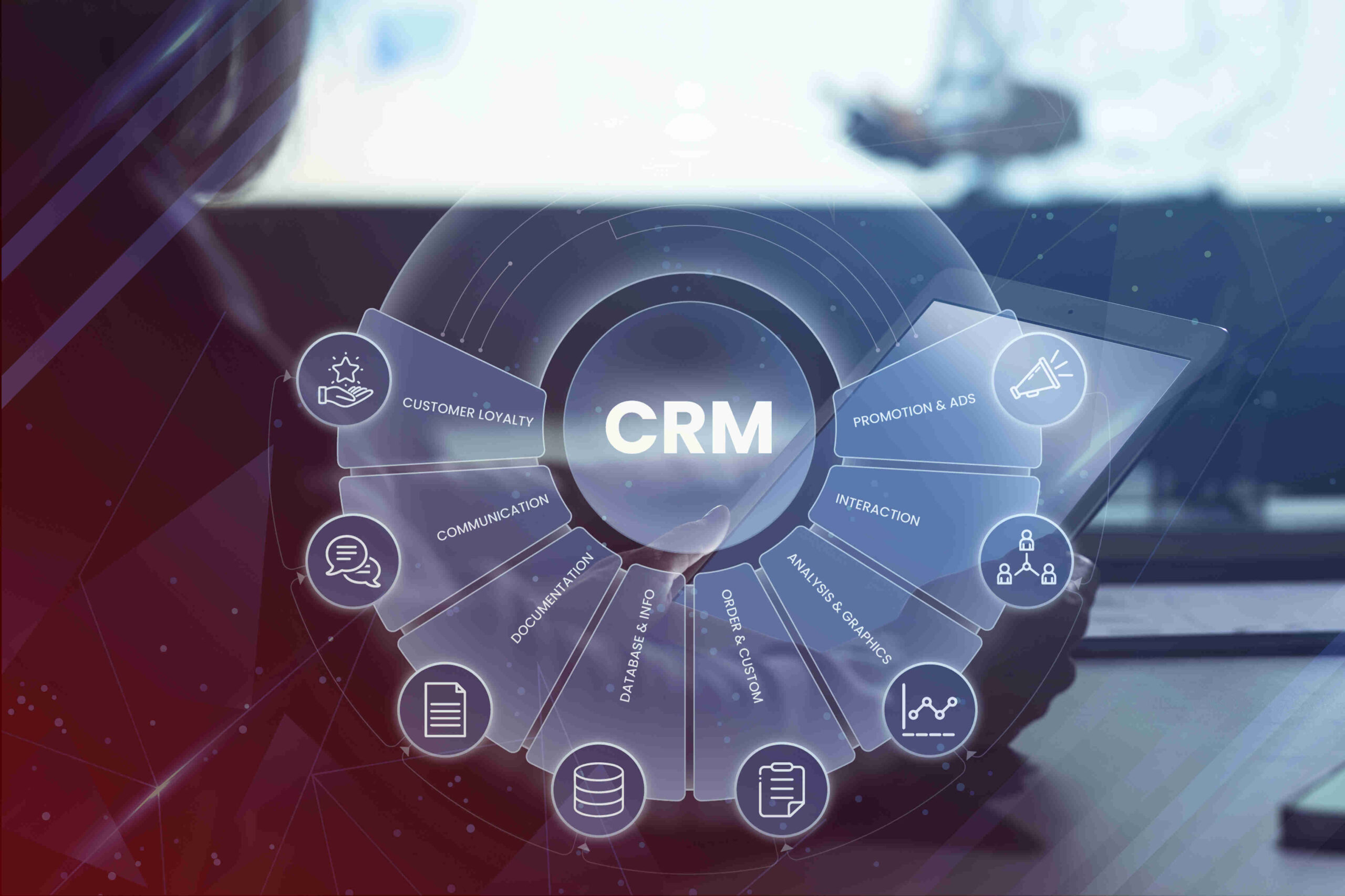How to Choose The Best CRM for Your Business
Picking the right CRM software for your growing business can be a challenge. With so many choices available, it’s important to understand what things to consider when making your decision.
If you’re feeling overloaded by worksheets and the work of managing customer connections, it’s the right time to implement CRM in your system. A CRM tool like SaleBee CRM can simplify your tasks and speed up your growth.
However, each CRM comes with its own set of features and pricing. That’s why it’s important to find the one that fits best with your business needs. In this article, you will learn how to choose the best CRM for your business so that you can get the best out of your investment.
What Is CRM?
A CRM, or customer relationship management software, is a digital tool designed to bring together all your customer, client, and partner data into one easy-to-reach platform. This central location makes it easier for your teams to work together internally and effectively manage your customer relationships.
Besides organizing information, CRMs offer extra features to improve your sales process, marketing efforts, and customer service.
Types of CRM Solutions
When it comes to managing customer relationships, there are different types of systems designed for various business needs. Let’s break them down into three main groups-
Collaborative CRM Systems
CRM systems can bridge the gap between different teams in your company. Usually, marketing, sales, and customer support teams work independently, where miscommunication can occur easily and ultimately affect the customer experience.
Collaborative CRMs solve this by giving everyone access to the same customer information, no matter which department they’re in or how the customer contacted you. This joined-up approach lets employees provide service while maintaining consistency.
Operational CRM Systems
These systems offer tools to track the entire customer experience, from the first time someone visits your website to what they do after buying something.
Operational CRMs also automate repetitive tasks. As a result, your employees can get more time to do other creative tasks. When your employees become more strategic, it will be a bonus for your company as well.
Analytical CRM Systems
It’s easy for a business to collect huge amounts of data from their clients. However, analyzing them is the real game. That’s where analytical CRMs show their charm. These tools can analyze customer data to extract valuable insights.
Analytical CRMs provide features to help businesses understand customer behavior trends, successful sales strategies, factors influencing customer retention, and common customer issues. These data are quite important to make informed decisions about future business steps.
Key Features to Look for in A CRM
There are many CRM options with various features, and some are even customized to specific industries. However, the following CRM features are the most common ones that you can find.
- Contact Management: This is essential for building strong customer relationships and provides a complete customer view.
- Workflow Automation: Saves time and effort by automating repetitive tasks. This is a must-have feature to keep your team productive.
- Customization: Allows you to customize the CRM to your specific needs and focus on the information you use most.
- Integrations: This allows your CRM to connect with other business software you already use.
- Real-time Data: Enables data-driven decisions with up-to-date information and valuable reports.
- Reporting: Offers insights into leads, sales, campaigns, and other areas to inform business decisions.
- Pipeline Management: Visualizes your sales pipeline, helps track customer progress, and maximizes opportunities.
- Quote and Order Management: Save time by using CRM features to generate quotes and automate the order process.
- Data Storage and Security: Protects sensitive customer and business information with robust security measures.
- Vendor Support and Training: Ensures you get the most out of your CRM with tutorials, training, and ongoing support.
Factors to Consider When Choosing a CRM
Now let’s see how to choose a CRM for small business or enterprise-scale business.
1. Understanding Your Business Needs
The first step is to understand your business’s as well as your team’s needs and goals. The way to figure it out is-
- Write down all the teams that will use the CRM.
- Get those teams together and ask them what features they want in the CRM.
- Let them try out different CRMs.
- Pick the CRM that most people found easiest to use and most helpful. This will make it easier for everyone to get used to the new system.
2. Budget Wisely and Look for Value
CRM software is a bit expensive. Especially, small businesses might struggle to allocate a budget for it. However, you can follow some tips to save money:
- Look out for hidden fees. Make sure you understand the total cost of the CRM.
- See if it’s cheaper to pay for a whole year at once instead of paying every month.
- Look for discounts and coupons.
- CRM companies often have different plans. Choose the plan that has the features your business needs and isn’t too expensive.
- Some CRM companies offer deals for startups. So, if you own a small company, see if you qualify for any discounts.
3. Security and Compliance
Your CRM must follow data privacy laws. This is especially important in Europe, where there’s a law called GDPR. A CRM that follows GDPR will keep your customer data safe and you will avoid getting in trouble.
4. Industry Expertise Can Make a Difference
Not all CRM companies have equal expertise. So, when choosing the right CRM for you, see if the company has experience working with businesses in your industry. If the vendor has prior experience, they will understand your specific needs and challenges better. You can find it out by,
- Ask your selected CRM company directly.
- Check their website for testimonials from businesses in your industry.
- Look for reviews on websites like G2, Clutch, etc.
5. Mobile App for On-the-Go Customer Relationship Management
In the past, having a mobile app for a CRM was a bonus, but today it’s almost essential for every business. Big companies might have employees who only work during office hours, but small businesses need to be more flexible.
To compete and grow, you might need to work outside the office. A mobile CRM lets you manage customer relationships on the go so that you can seize all the opportunities whenever they arise.
6. Cloud-Based Solutions Offer Advantages
Cloud storage keeps your CRM data secure and readily available. Access it anytime, anywhere, with just an internet connection. On the other hand, on-premise CRM stores data on your company computers. Just like your own filing cabinets, you need to maintain the servers yourself.
These days, most businesses choose cloud-based CRMs because they are:
- Cheaper
- Faster to set up
- More features and functionality
- Easier to use
- Better support
7. Excellent Customer Support is Essential
When choosing a CRM, consider the quality of customer support. Your CRM should run smoothly to keep your customers happy. Look for a vendor that offers,
- Fast and easy help: The vendor should be able to fix problems quickly. It’s better to have a 24/7 client support system.
- Multiple ways to get help: The support should be provided by phone, email, chat, or whatever works best for you.
- Customer Success, not just Support: It would be better to have a Customer Success team that can help you get the most out of your CRM and use it to grow your business. This is better than just basic customer support that only fixes problems.
8. Pick A CRM That Is Compatible with Your Current System
Make sure the CRM you choose can connect with your existing programs like email, accounting, or marketing tools. This way, everything works together smoothly and you can avoid wasting money on a CRM that doesn’t fit your needs.
Ensure the CRM you choose integrates well with the software your business already uses. This avoids compatibility issues and allows you to leverage the full functionality of both systems. Additionally, consider the future of your business. Choose a CRM that offers a wide range of integrations to support your growth and adapt to your evolving needs.
9. Scalable Features
Small businesses dream of turning into large corporations one day. No enterprise-level business don’t want to be in the same place forever too. That’s why scalability is one of the crucial features of a perfect CRM.
You need to pick up a solution that offers an extensive list of integration opportunities and keep adding more over time. Otherwise, it can be a real pain if you need to transfer all of your data and begin as new.
10. Pick Your Favorites and Test Them
After you have chosen a few CRM tools, it’s time to see how easy they are to use. See the ways to get a feel for a CRM
- Try it for free: Many CRMs offer free trials so you can try out the features.
- Import your contacts: See how easy it is to add your customer information to the system.
- Learn from the experts: Check out the CRM’s online guides and tutorials.
- Watch how-to videos: Many companies have YouTube channels with helpful videos.
- Schedule a quick demo: Talk to the CRM company about their product and see it in action.
How to choose CRM software: Key Takeaways
- Figure out what your business needs
- Compare what different CRMs offer
- Get more information with a demo or ask questions to learn more in a sales call
- Let your team utilize the free trial option to test it out
End Note
How to choose the best CRM for your business? Hope, you get the answer now. Altough it’s a bit challenging, you can consider the mentioned factors, to make the right decision. If you think a CRM tool can help your business grow and become more efficient, it’s time to start your search!
You can consider SaleBee CRM as your affordable growing partner. Want to see how SaleBee CRM can help you achieve your goals? Get a free trial today!


